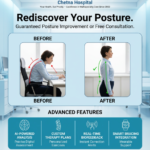Visiting a surgeon early is not only about getting treated; it’s about preventing minor conditions from becoming major health issues. With the availability of advanced diagnostic tools, minimally invasive surgeries, and experienced specialists, early consultation ensures safer, faster, and more effective outcomes.
🔹 Why People Delay Seeing a Surgeon
Delaying a surgical consultation is a common pattern observed in patients across all age groups. Let’s understand the main reasons behind it:
Fear of Surgery:
The word “surgery” itself creates anxiety. Many people fear pain, scars, and complications, not realizing that most modern surgeries are minimally invasive and highly safe.
Misinterpreting Symptoms:
Symptoms like abdominal pain, swelling, or lumps are often mistaken for minor digestive or muscular issues. Self-diagnosis and home remedies mask the problem rather than solve it.
Dependence on Temporary Relief:
Over-the-counter painkillers or antibiotics may suppress pain temporarily, but they don’t treat the underlying cause.
Lack of Awareness:
Many people don’t realize that even small issues like a hernia, gallstones, or fissure can worsen over time and lead to emergencies if untreated.
Busy Lifestyle:
Work pressure and personal commitments often lead people to postpone consultations, thinking, “I’ll go next week.” But that “next week” sometimes comes too late.
🔹 Early Consultation Can Prevent Major Complications
Early diagnosis is the foundation of effective treatment. When you consult a surgeon at the first sign of trouble, it becomes possible to treat the condition with simpler and less invasive procedures.
Let’s understand this with a few examples:
Appendicitis:
Initial pain and nausea can easily be mistaken for indigestion. But untreated appendicitis can rupture, causing severe infection (peritonitis) and requiring emergency surgery.
Gallbladder Stones:
A small stone might not cause symptoms at first. But over time, it can block ducts, leading to severe pain, infection, or even pancreatitis — all of which are preventable with early detection.
Hernia:
A small bulge may seem harmless initially. However, without treatment, it can enlarge, cause discomfort, and in some cases, strangulate the intestine — a surgical emergency.
Piles, Fissure, or Fistula:
These conditions are often ignored due to embarrassment. But early treatment can prevent chronic pain, infection, and complications that require more complex surgery later.
In all these cases, early consultation saves both time and suffering.
🔹 Benefits of Consulting a Surgeon Early
Accurate Diagnosis:
Surgeons are trained to identify structural or anatomical issues that may not respond to medicines alone. Early evaluation ensures that the real cause is detected quickly.
Preventing Disease Progression:
Many surgical conditions progress silently. Timely consultation helps in stopping the condition before it reaches an advanced stage.
Minimally Invasive Treatment:
With advancements like laparoscopic (keyhole) surgery, most procedures today involve smaller incisions, less pain, and faster recovery. Early-stage problems are often suitable for such minimally invasive techniques.
Reduced Complications:
When surgery is performed early, tissue damage, infection, or spread of disease is minimal — leading to smoother recovery and better long-term outcomes.
Shorter Hospital Stay:
Early treatment usually means smaller surgery and shorter hospitalization — allowing patients to return to daily life quickly.
Lower Medical Expenses:
Preventive and early surgical care costs significantly less than emergency or complicated procedures that require intensive care or prolonged stays.
🔹 Modern Surgical Techniques – Safe, Quick & Reliable
Gone are the days when surgery meant large cuts and long recovery periods. With the advent of laparoscopic and laser-assisted surgeries, patients can now experience painless and scar-free healing.
Laparoscopic Surgery:
This minimally invasive technique uses tiny incisions, a camera, and fine instruments for precision. It offers faster recovery, less pain, and minimal scarring.
Laser Surgery:
For conditions like piles, fissure, or fistula, laser treatment provides highly effective results with minimal discomfort.
Day Care Surgery:
Many patients can go home the same day after surgery — thanks to advanced anesthesia and quick-recovery techniques.
At Chetna Hospital, Chinchwad, patients receive comprehensive surgical care with advanced diagnostic facilities, modern operation theatres, and expert post-surgery support.
🔹 What Happens During an Early Consultation
Visiting a general surgeon doesn’t always mean you’ll need surgery immediately. The purpose of the consultation is to evaluate, diagnose, and guide you on the best course of treatment.
Here’s what typically happens during your first visit:
Detailed Discussion of Symptoms:
The surgeon listens carefully to your concerns, medical history, and lifestyle.
Clinical Examination:
A thorough physical check helps in assessing the affected area.
Investigations (if needed):
You may be advised tests like ultrasound, CT scan, or blood work to confirm the diagnosis.
Treatment Plan:
Based on results, the surgeon suggests options — whether it’s observation, medical management, or a simple surgical procedure.
Guidance for Recovery:
You’ll receive lifestyle, diet, and post-care advice even if surgery isn’t immediately needed.
This process ensures that patients are well-informed and confident about their treatment decisions.
🔹 The Role of Awareness in Better Health
Awareness is the first step to prevention. People often associate surgeons only with “operations,” but the truth is — a good surgeon helps you avoid unnecessary surgery whenever possible.
By spreading awareness about early consultation, hospitals like Chetna Hospital aim to encourage people to seek help before it’s too late. Educating patients about symptoms and safe surgical options builds trust and promotes healthier outcomes.
🔹 When Should You See a Surgeon?
You should consult a surgeon if you experience:
Persistent abdominal pain or swelling
Lump or mass under the skin
Change in bowel habits
Pain that does not improve with medication
Recurrent infections or abscesses
Non-healing wounds
Piles, fissure, or rectal bleeding
Sudden severe pain or vomiting
These could be early signs of conditions that require surgical evaluation.
🔹 Post-Surgery Recovery: The Advantage of Early Treatment
Patients who undergo early surgical intervention typically experience smoother recovery and minimal complications. Here’s why:
Less Tissue Damage: Early surgery means smaller incisions and less trauma.
Faster Healing: The body recovers quickly when treated before major inflammation or infection sets in.
Better Outcomes: Long-term results are more predictable when surgery is performed in the initial stage of disease.
Peace of Mind: Early treatment brings emotional relief — reducing anxiety and fear associated with prolonged illness.













